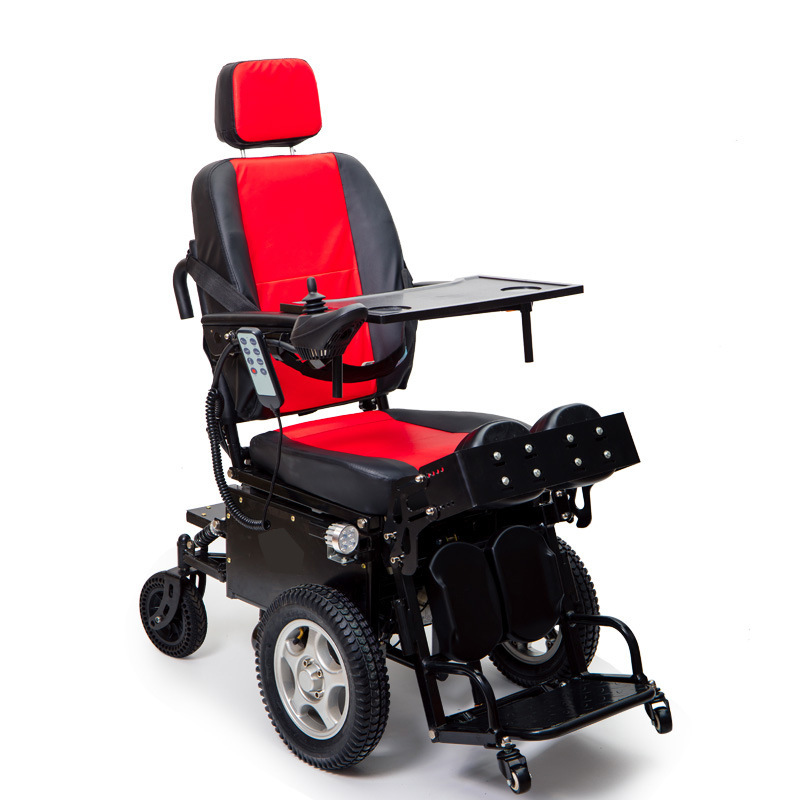Standing wheelchairs transcend traditional notions of mobility devices by empowering users with a myriad of physical, social, and psychological benefits. Here’s a closer look at how standing wheelchairs contribute to empowerment:
- Independence and Autonomy: The ability to stand independently fosters a sense of control over one’s body and environment, enhancing overall independence.
- Heightened Interaction: Standing at eye level enables users to actively participate in conversations, engage in social activities, and maintain direct eye contact with others.
- Participation in Daily Activities: Standing wheelchairs enable users to perform tasks that were previously challenging or impossible, such as cooking, reaching items on high shelves, and navigating their surroundings.
- Reduced Dependency: Standing wheelchairs reduce the need for assistance in various tasks, promoting self-reliance and decreasing reliance on caregivers.
- Social Confidence: The act of standing can boost self-confidence and social interaction, leading to a greater sense of belonging and acceptance.
- Improved Mood: The physical act of standing triggers the release of endorphins, contributing to a more positive mood and a sense of well-being.
- Functional Fitness: Standing engages various muscle groups, supporting muscle tone, joint flexibility, and overall physical fitness.
- Posture and Alignment: Standing wheelchairs promote proper spinal alignment and posture, which are crucial for preventing musculoskeletal issues.
- Participation in Public Spaces: Many public spaces are designed with standing individuals in mind. Standing wheelchairs enable users to engage more fully in these environments.
- Sense of Normalcy: Standing wheelchairs normalize the act of standing for individuals with mobility challenges, reducing stigma and fostering inclusion.
By enabling users to stand, engage, and interact on their terms, standing wheelchairs empower individuals to lead fulfilling lives, redefine their capabilities, and break down barriers that once limited their experiences.














